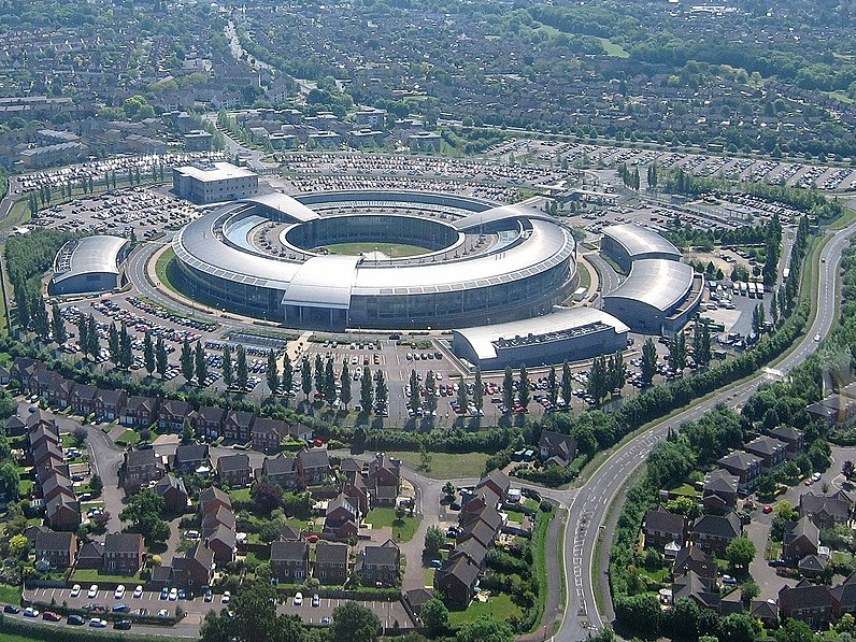Snowden Validated: European Court Says the Mass Surveillance He Exposed Violates Privacy Rights
Since his whistleblowing, the United Kingdom has granted itself even more power to snoop on citizens.

When Edward Snowden revealed that the government was secretly collecting and storing mass amounts of our private communications data, he wasn't just talking about the United States government. He also exposed the United Kingdom's intelligence agency (Government Communications Headquarters, or GCHQ) as doing the same overseas.
Today the European Court of Human Rights ruled that the U.K.'s mass collection of everybody's internet communications data violated privacy and failed to provide sufficient safeguards. The Guardian explains that after Snowden exposed the British government's role in citizen surveillance, tapping into communication networks to suck on that massive firehose of data, 14 human rights and privacy groups filed suit against the U.K.
By a 5-2 vote the court's judges determined that the U.K. had violated the privacy components of the European Convention of Human Rights. The court ruled that that while bulk surveillance can be justified to track terrorists and criminals and protect national security, the collection of data must indicate the types of crimes that would lead to bulk gathering of information, which classes of people would be subject to having their data gathered, and of course, procedures for how the data would be used, how it would be shared, and when it would be destroyed. The judges concluded, "[I]t does not consider that the authorities have struck a fair balance between the competing public and private interests by exempting it in its entirety from the safeguards applicable to the searching and examining of content."
After the court's ruling, rather than taking all the credit for exposing the surveillance to public scrutiny, Snowden tweeted out his appreciation for the groups who have taken the matter to the courts to try to stop what the U.K. has been doing:
For five long years, governments have denied that global mass surveillance violates of your rights. And for five long years, we have chased them through the doors of every court. Today, we won. Don't thank me: thank all of those who never stopped fighting. https://t.co/ARgbI5PKaa
— Edward Snowden (@Snowden) September 13, 2018
Unfortunately, the U.K.'s response to the revelation that they were secretly snooping on its citizens was to pass the Investigatory Powers Act, a broad surveillance law that essentially gives the government permission to do what it had been secretly (and apparently illegally) doing all along. This ruling did not cover the Investigatory Powers Act, but The Guardian notes that the judges appear to take a dim view of the warrant system the new rules put into place, as they also do not require the government to indicate who or what is being surveilled.
Jim Killock of the Open Rights Group notes in response to the ruling that the United Kingdom has actually increased its own powers to snoop on citizens post-Snowden. Killock believes this judgment makes it "even clearer that these powers do not meet the criteria for proportionate surveillance and that the UK government is continuing to breach our right to privacy."
Bonus link: Here's what's happened in the world of secret government surveillance in the five years since Snowden blew the whistle on it.

Show Comments (51)